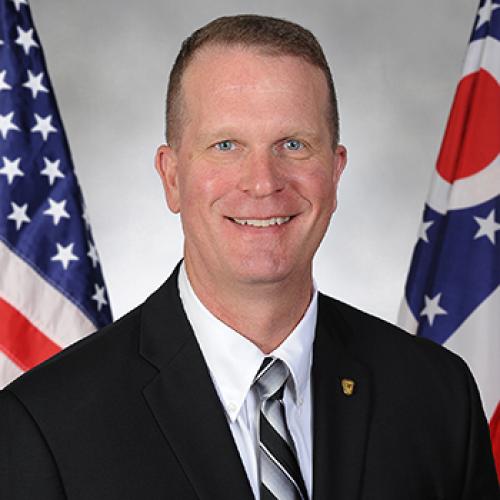
Scripps College of Communication offers graduate communication-related certificates, beginning with Crisis Communications

Ohio University’s Scripps College of Communication is offering new communications-related graduate certificate programs designed to educate graduate students and professionals in relevant, practical applications of communication, beginning with crisis communication.
The new certificate series, created prior to the pandemic crisis, will include Crisis Communication, Digital Media Transformation and Innovation, Interacting with the Media for non-journalists and Interacting with the Media for STEM professionals.
“These new certificates expand the scope of the work our college has done for more than 50 years,” Scripps College of Communication Dean Dr. Scott Titsworth said. “The online delivery will allow us to bring our world-class communication education to working professionals everywhere.”
The first workshop in the series will begin on Aug. 1 with an online crisis communication and planning workshop led by Visiting Assistant Professor John Born, executive in residence at the Scripps College of Communication and the Voinovich School for Leadership and Public Affairs and former director of the Ohio Department of Public Safety.
The online Crisis Communication and Planning workshop is the first component of a course designed to prepare students and organizations to plan for a crisis, recognize, communicate and operate within a crisis to ensure resiliency, and recover from a crisis. Students will put into practice what is learned and be challenged to recognize, adapt, and respond to crises.
“It has been my experience, and validated by countless examinations following crisis events, communication is the key factor in a crisis,” Born said. “While emergencies and disasters are terms occasionally used interchangeably with crises, a crisis is a broader concept which encompasses both risk and opportunity, and I think with what is going on with the world and national events, this course could not be offered at a more opportune time.”
The course is not a federal crisis planning certification course, yet the concepts will be foundational and follow national standards.
The workshop will examine crises, and their characteristics, types, and challenges as well as fundamental steps and elements of preparing for a crisis, including preparing a crisis plan outline and a crisis communication plan, to mitigate negative impacts and ensure resiliency and recovery. It will also define and explore crisis communication and planning by utilizing best practices and resources as well as online content and videos.
The target audience for this specific certificate is primarily professionals in private sector, public sector, and non-governmental leadership and communication positions who are likely to be directly impacted by a crisis affecting their organization.
The crisis communication certificate consists of three courses totaling 12 credit hours. Two experiences comprise the first “course,” a one-credit hour workshop and a three-credit hour online course (Crisis Communication and Planning). The workshop and the course can be taken concurrently, and the workshop will be offered both in person and online. The workshop will provide a general overview for professionals who cannot commit to a semester-long course, as well as acting as a first step toward the certificate.
The second and third courses are Crisis Communication Strategy and Social Media Analytics. The courses do not need to be taken in sequence, but will all be delivered online, in person (including a workshop), or as a hybrid.
“There is a significant national gap in formal and relevant education to prepare communication professionals and leaders when a crisis impacts an organization,” Born added. “While many national institutions of higher education provide crisis management education and a few offer courses that include crisis communication, none have been found that offer a crisis communication certificate.”
Aside from his current professorship and work with the Ohio Department of Public Safety, Born served as the federally designated Homeland Security Adviser to the governor during his time as director, as well as colonel of the Ohio State Highway Patrol prior.
As director, he led statewide public safety efforts through the global 2014 Ebola outbreak crisis and numerous other crises including terrorism cases, tornadoes, floods, opiate overdose deaths, school shootings, drinking water shortages, civil unrest, and cyber-attacks. He also served as the Patrol’s first ever public information officer, including during several nationally- and internationally-covered crises, and developed related law enforcement and first-responder media relations training used in Ohio and the United States.
Born holds Bachelor of Science in Journalism and Master of Social Science in deviant behavior degrees from Ohio University and completed the FBI’s National Executive Institute, governance training at Harvard Business School and leadership training at the United States Army War College.
